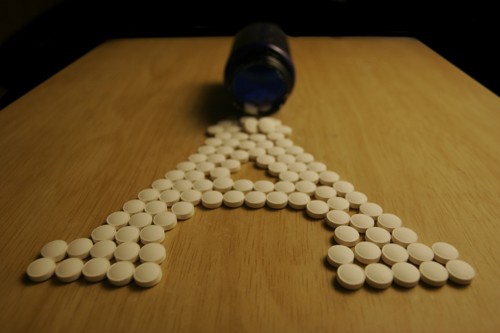More than one million dollars is being allotted to UA researchers to study the long-term effects of ecstasy on users.
The $1.7 million grant was awarded 18 months ago to Dr. Terrence Monks, head of the pharmacy and toxicology department. The National Institute for Drug Abuse under the National Institute of Health commissioned the research.
“”By studying the science of ecstasy in more detail, we can really figure out the way in which (people) metabolize drugs and how much the body does its best to get rid of it,”” Monks said.
His interest in pharmacology stems from a background in studying drugs and their effects on the body.
Monks’ research goes past the more publicized effects of the drugs.
“”The first thing that usually is associated with ecstasy is the acute effect which usually follows an overdose on the drug,”” he said. “”It has an adverse effect on the kidneys. So, we see the hyperthermic response of the body. We see the deaths.””
Dr. Mazda Shirazi, of the toxicology department of the UA emergency medical center, notes the effects of the “”hug-drug”” are hard on the body’s systems.
“”You get a loving inebriation,”” Shirazi said of the drug. “”But there are hallucinogenic and cardiovascular effects when too much of it is used.””
He noted that many can begin to crave the drug in an addiction process similar to alcohol or opiates, and since many producers of the drug are clandestine and there is no regulation on usage or dosage, ecstasy can cause a lot of harm.
“”It starts with high blood pressure, elevated heart rates, increased body temperature and pupil dilation,”” Shirazi said. “”There can be seizures. If there is nothing done, there can be kidney damage, muscle deterioration, liver dysfunction … and ultimately death.””
Using animal models, the study focuses on long-term physiological effects of the drug on users. This research might be able to find a way prevent the ill effects.
“”The drug is thought to produce a specific form of neurotoxicity,”” Monks said. “”Ecstasy interferes with the system that controls a lot of subtle human behaviors. (Users) feel a little more relaxed, or more intimate, more willing to talk about difficult subjects. That’s usually why the drug is used.””
Monks said this study will focus on the science and other national studies will work to assess whether the long-term effects are reversible.
“”The extent to which those effects are permanent or reversible is what we don’t know,”” he said. “”My lab focuses on how and why ecstasy does what it does. So, it will teach us a lot more about the systems we have.””
A 2003 University of Michigan study found that ecstasy was the second most likely illicit drug used by students, following marijuana, out of a random sample of more than 3,000 students. In the study, 10 percent had used the drug in their lifetime and 3 percent had in the last month.
David Salafsky, director of Health Promotion-Prevention Services at UA Campus Health, hasn’t noticed the trend.
“”Alcohol is the drug of choice for students and that is really what we see the most of,”” Salafsky said. “”The thing about club drugs is that they tend to get a lot of attention but based on what we tend to see, we see relatively small use of drugs of that type.””
In the Campus Health and Wellness survey, Campus Health used to list ecstasy in its list of possible drugs used by students, but low numbers of use reflected a smaller trend than what might be expected.
“”Based on the survey data that we get, the numbers are quite small, but we want to make sure that students know that we have professionals that they can sit down with if they want to talk about those issues,”” Salafsky said.
Salafsky says students have several options to talk about and deal with drug problems, including ecstasy, with Health Promotion-Prevention Services, Counseling and Psychological Services and drug education programs run by Campus Health.









